 By Shaun Smith (@the_brackshow)
By Shaun Smith (@the_brackshow)
“The path of the righteous man is beset on all sides by the inequities of the selfish and the tyranny of evil men,” and so on and so on. One of the most quotable movie speeches of all time from a little film called, “Pulp Fiction” (By the way, the verse is made up and is not in the Bible. We can now all move on with our lives).
“Pulp Fiction” is one of those rare films that is so difficult to accurately describe in a short and concise manner, that most people end up using the title as a verb.
Released in 1994, the second film of famed director Quentin Tarantino, “Pulp Fiction” hit the general public with the fury of a category five hurricane and became an instant critical darling.
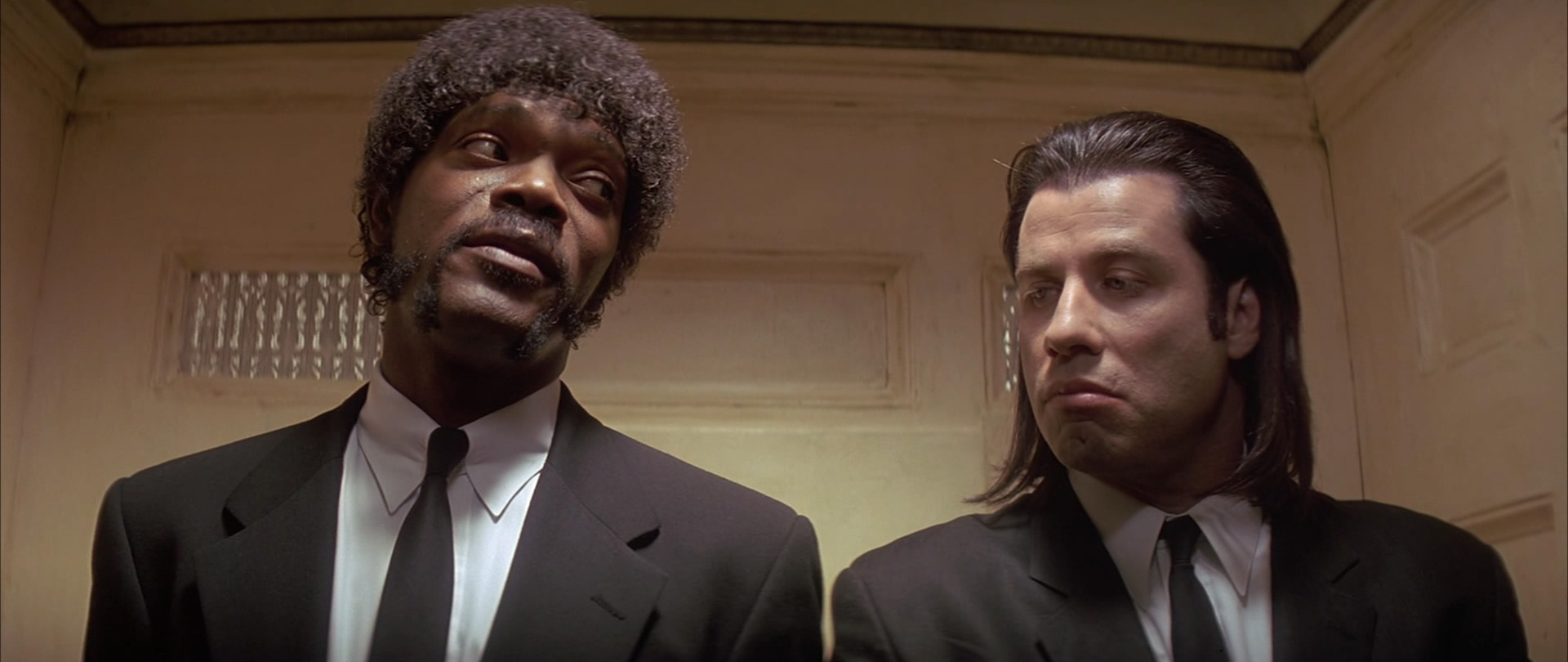
The plot is hashed out between seven chapters (including a prologue and epilogue), each with some sort of overlap with another, whether it’s stories lining up together or characters appearing in each other’s chapter.
The film begins with a criminal couple robbing a diner, then is followed by two hitmen (Vincent & Jules) collecting a mysteriously gold-glowing briefcase for their boss (Marsellus Wallace) and the dilemma Vincent faces when tasked with keeping his boss’ wife company for a night.

We then move to the story of a boxer (Butch) who screws over Wallace after not fixing his fight and attempts to runaway. The film then finishes with Vincent & Jules dealing with a freak accident while determining each one’s existential purpose. Everything then wraps around to reveal the couple robbing the same diner from the beginning of the film as they encounter Vincent & Jules.
The shifting timelines in the story is one of the most notable techniques the film is remembered for. It’s not a new approach to present the narrative of a film out of sequential order, however, Tarantino puts his own touch on the concept and propels it into something of its own.
Not only does the film use narrative bending elements throughout, but also the ultra-violent tone of the picture is noteworthy, especially for it’s time. People who may not have seen the film before are presumably picturing an all-out violent gore fest, which is not the case. It’s more accurate to describe the tone as aggressive.
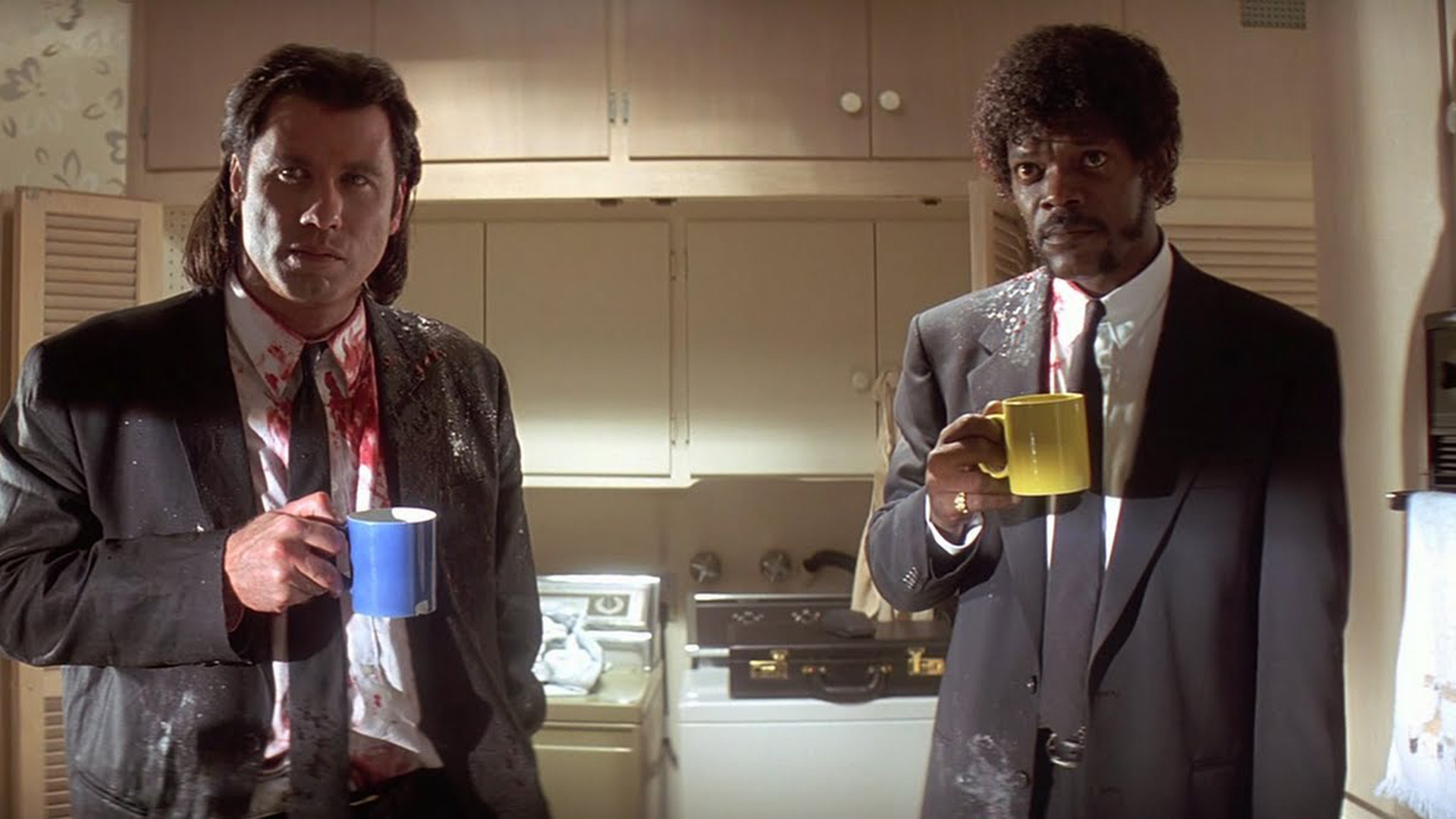
Other than a few spots here or there (gunshot wounds, the aftermath of a head explosion, etc), there really isn’t a massive amount of blood throughout the film. I use the term aggressive because rather than showing massive amounts of violence, the tone is very in-your-face and raw.
The film is filled with very colorful language, some of which is used for humor, and some adult situations such as drug use, kidnapping, and even rape.
(Fun Fact: The word ‘f**k’ was used a total of 265 times in the film, which at the time of its release, would have been 3rd most all time behind Tarantino’s previous film “Reservoir Dogs”, and “Goodfellas”. With it’s 154 minute running time, that equates to 1.72 uses per minute.)

The language and suggestive themes almost slapped “Pulp Fiction” with the dreaded NC-17 rating before it’s release. Fortunately they won their appeal and were able to obtain an R-rating without needing to cut anything from the film.
The film was originally an independent feature from Miramax (who at the time was an small studio and was just about to be purchased by Disney for $60 million) and was given a meager $8 million budget, with $5 million of it going to the actors.

“Pulp Fiction” turned into not only a financial success, earning over $213 million worldwide, but also a pop-culture phenomenon. The film is known for putting Samuel L. Jackson on the map in Hollywood as well as the revitalization of John Travolta’s career, who up to this point was floundering as an actor.
Arguably what “Pulp Fiction” is most known for is creating a new style of films that were more gritty and super-violent than before, some even carrying over the non-linear, time-shifting format. A majorities of these ‘homages’ were released within five years after “Pulp Ficiton” from 1995-2000.
The most popular of these ‘copycat’ films would be 1999’s “The Boondock Saints”. However there are other lesser known “Tarantino-influenced” films from the 1990s such as: “Things To Do In Denver When You’re Dead”, “The Way of the Gun”, “Go”, and “8 Heads in a Dufflebag”. There was even a film called “Killing Zoe” featuring Eric Stoltz, who also appears in “Pulp Fiction”, and was written and directed by the co-writer Roger Avery.
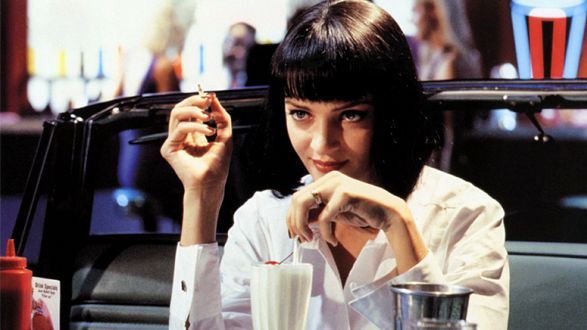
Even though “Pulp Fiction” was a monster success story and created this ‘Tarantino-style’ that we all know today, the truth of the matter is the style had already existed for a few years beforehand.
Previous to “Pulp”, Tarantino had sold two previous feature-length scripts to Warner Brothers, “True Romance” and “Natural Born Killers”. Even though both films were not directed by Quentin himself (“True Romance” by Tony Scott and “Natural Born Killers” by Oliver Stone), you can see the Tarantino style throughout both screenplays. Both Scott & Stone did put their own creative spin onto the films, but the Tarantino seeds were still there.
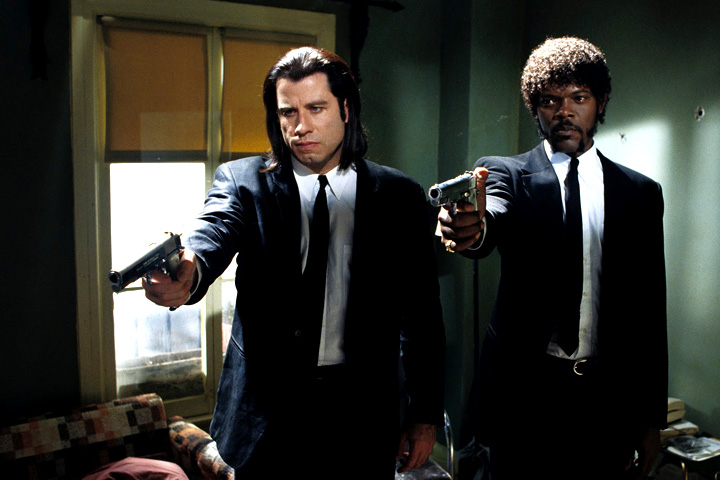
(Fun Fact: “Natural Born Killers” was actually released in 1994, the same year as “Pulp Fiction,” just two months prior. The film even follows a similar non-linear storytelling format to that of “Pulp” and also sought controversy for it’s violent tone. “Natural Born Killers” was however not as critically or financially successful as “Pulp Fiction”.)
Even Tarantino’s debut feature “Reservoir Dogs” follows many of the motifs made famous by “Pulp Fiction”. Non-linear storytelling, criminal main characters who deliver punchy dialogue featuring pop-culture references, and an aggressively violent tone. But I guess since the film was not a financial success and was just moderately received by critics, it doesn’t get the justification it deserves.
What I love the most about “Pulp Fiction” is the screenplay, and more specifically the expertly written dialogue. Words just seem to flow together anytime a character speaks on screen. Tarantino is able to make random conversations turn into cinema gold.

(Fun Fact: Quentin Tarantino won an Oscar for the screenplay of “Pulp Fiction” and was also nominated for Best Director the same year.)
Not to be outdone, the acting in the film is great as well. The two hitmen, played by Samuel L. Jackson and John Travolta, have great chemistry and you really get the sense that, not only that they have been working side-by-side for a long time, but also that they have a relatability with each other.
Uma Thurman also gives an interestingly quirky performance as Mia Wallace, Marcellus’s wife. It’s difficult to describe her character other than stating that she’s a former actress who loves to dance, and loves cocaine even more.
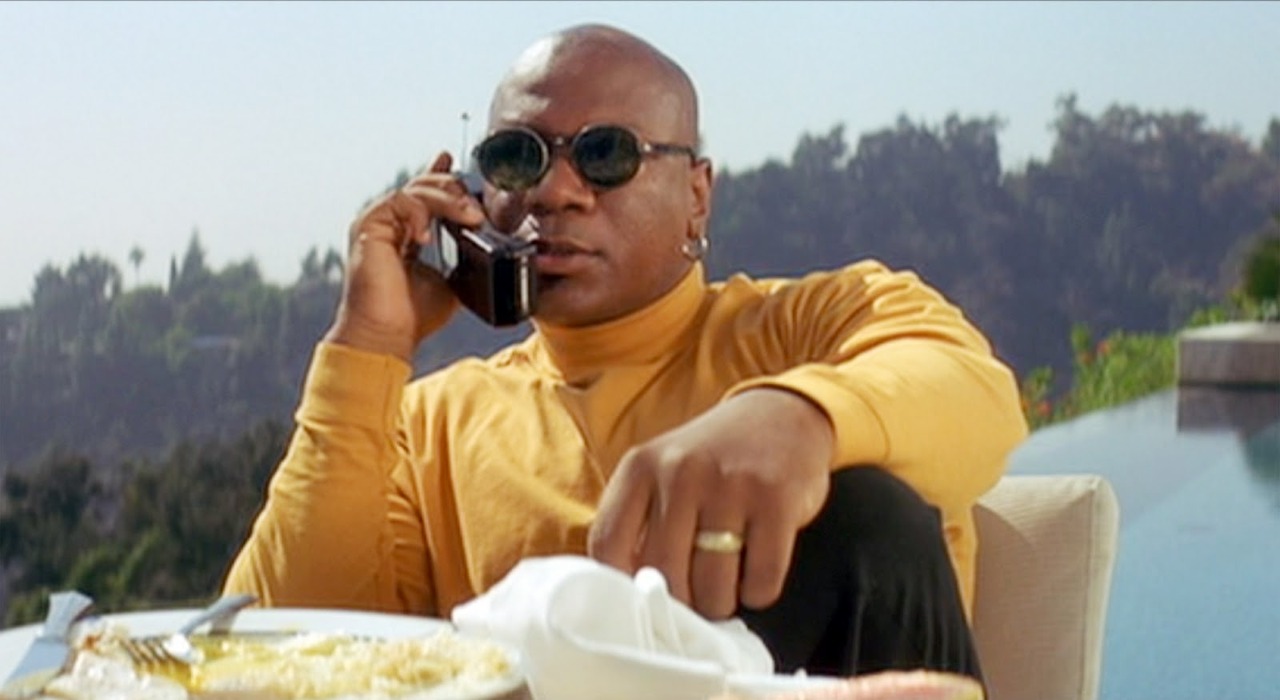
Ving Rhames is great as Marcellus Wallace. He brings a presence every time he is on screen. The speech he gives Butch before throwing the boxing fight is one of the great speeches in film history. The best part is you never even see his face during the speech. The camera remains focused on Butch for most of the scene.
(Fun Fact: The Marcellus Wallace character features a mysterious band-aid on the back of his head, down towards his neck. Many explanations have been theorized over what this band-aid means or represents. My favorite is that the illuminating briefcase actually contains Wallace’s soul and the band-aid is covering where his soul was extracted by Satan himself.)
Speaking of Butch, played by Bruce Willis, he’s… he’s Bruce Willis. He’s fine as the Butch character. I can’t say Willis brings anything to the performance other than what he normally brings to every role. He’s just as brash and cocky as any other Bruce Willis character, which works within the film.

Not to be outdone in the cool department, Harvey Keitel almost steals the film with his ultra-cool, yet brief, performance as The Wolf. That’s right, his name is Winston Wolfe and he is the best cleaner there is, and I don’t mean that kind of cleaner. He drives a fast car and is always prepared. If you have some kind of issue, the one man you want to call to fix your problems is The Wolf.
The film also features fantastic supporting appearances by Christopher Walken, Tim Roth, Amanda Plummer, and Eric Stoltz.

Quentin Tarantino is such an interesting filmmaker and auteur. He routinely puts out a quality product and, at least for myself, has never disappointed. One of the things that makes such an interesting filmmaker is how it’s almost impossible to describe his style.
It’s almost like an amalgamation of different techniques from yesteryear all blended into one. You can clearly see influences from other sources as they are all tightly wrapped around his unique screenwriting style and seasoned with brilliant music choices.
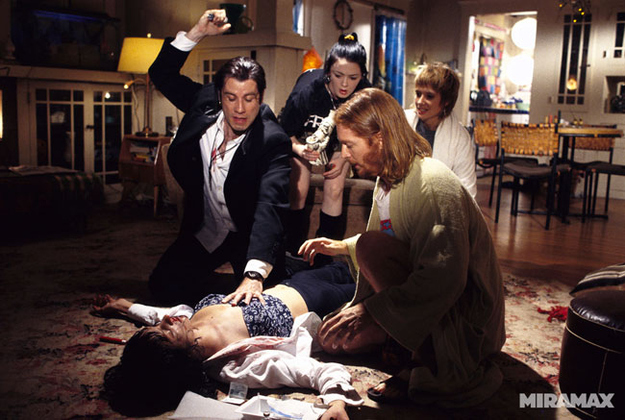
I’ve always considered “Pulp Fiction” to be my favorite movie of all time. Whether it was the writing, the characters, the expansive story, the offhanded humor, or just the small quirky moments that appealed to me, overall the film is credited as being my biggest influence of becoming a film nerd.
It also holds the distinction of the movie I’ve seen the most times. I won’t reveal the true number here but I may be inclined to answer such question on Twitter.